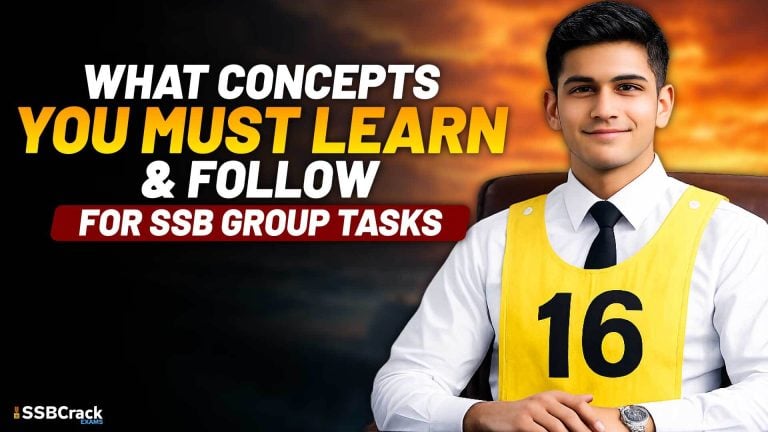Hello Warriors! You cannot become a successful communicator unless you are a good listener. And without good communication, it’s hard for you to find a place in the armed forces. Though we spend a lot of time listening, we take listening for granted. It is very important to remember that effective listening is a very important quality in an officer, both in war and peace.
Listening is an active process that requires you to anticipate a message, set a purpose, make and confirm predictions and inferences, interpret, summarise, evaluate and analyze the information you process. Listening is a very important factor in SSBs as what the officers say you, indirectly they try to take it back from you in the form of GTOs.
Here, I give you some tips to be an effective listener:
1. Be Attentive: Keep an open mind and stay focused on the speaker and the topic. Pay attention to the person who is speaking. Do not get distracted while you listen.
2. Maintain Eye Contact: Eye contact keeps you focused and involved in what the speaker says.
3. Stay Focused: Make sure your mind is focused. Your mind may wander if you think you know what the person is going to say next. But you might be wrong. If you feel that your mind is wandering, change the position of your body and try to concentrate on the speaker’s words.
4. Focus on content: Try to identify the purpose and the main ideas behind the speech. This will help you to concentrate on the content.
5. Listen Completely: Do not interrupt the speaker because it will disturb the line of thought. Moreover, when you interrupt, it looks as if you are not listening, even if you really are. Wait till the speaker has finished speaking before you ask your question.
6. Avoid Emotional Involvement: Try to remain objective and open-minded. When you get emotionally involved in the conversation or speech, you tend to hear what you want to hear not what is actually being said.
7. Avoid Distractions: Identify the cause of distraction and overcome it, if possible, by solving the problem.
8. Listen For Main Ideas: The main ideas are the most important points the speaker wants to convey. Pay special attention to the statements that begin with phrases such as ‘My point is…’ or ‘The thing to remember is…’
9. Ask Questions: If you are not sure whether you understood what the speaker has said, just ask. It is a good idea to rephrase the speaker’s words so that you can be sure that your understanding is correct. For example, you might ask, ‘When you said that no two groups will be tested at once, did you mean that others are free while one group is performing the tasks?’
10. Ask Yourself Mental Questions: Active listening keeps you on your toes. Here are some questions you can ask yourself as you listen. ‘What key point is the speaker making?’ ‘How does this fit with what I know from previous knowledge?’
11. Use The Gap Between The Rate Of Speech And Rate Of Thought: You can think faster than the speaker can talk. Due to this, your mind may wander. With practice, you’ll be able to think about what you are listening to, understand it, and give feedback to the speaker.
12. Give Feedback: Sit up straight and look directly at the speaker. Now and then, nod to show that you understand. At appropriate points, you may also smile, laugh or be silent. These are all ways to let the speaker know that you are really listening.
13. Adjust To The Accent: If a native speaks or talks, you may find it difficult to follow the content. This is mainly due to the different manner in which the speaker pronounces individual sounds, words and sentences. The reason is the difference in the way a native speaker stresses words and sentences, and the way we do.
So, we have always said about the importance of good listening and still stress on it. If you listen good, half the battle is won. Try to practise these tips in your day to day lives such as in college or with your family.
If you still have any queries or problems, you can reach out to our team.







